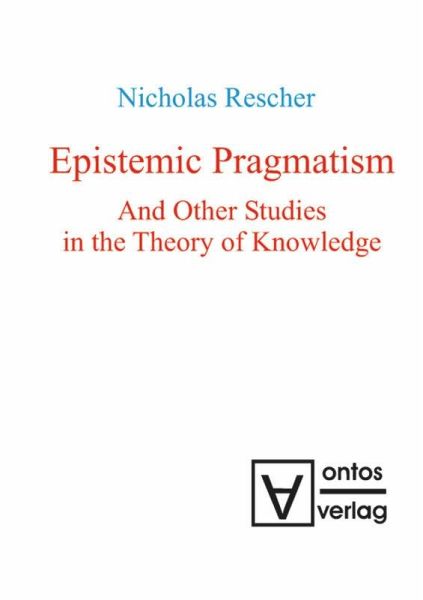
Epistemic Pragmatism and Other Studies in the Theory of Knowledge

PAYBACK Punkte
0 °P sammeln!
The core of pragmatism lies in the concept of functional efficacy-of utility in short. And epistemic pragmatism accordingly focuses on the utility of our devices and practices in relation to the aims and purposes of the cognitive enterprise-answering questions, resolving puzzlement, guiding action. The present book revolves around this theme. All papers in this book bear on epistemological topics which have preoccupied Nicholas Rescher for many years. Much as with the thematic structure of this book, this interest expanded from an initial concern with the exact sciences, to encompass the epist...
The core of pragmatism lies in the concept of functional efficacy-of utility in short. And epistemic pragmatism accordingly focuses on the utility of our devices and practices in relation to the aims and purposes of the cognitive enterprise-answering questions, resolving puzzlement, guiding action. The present book revolves around this theme. All papers in this book bear on epistemological topics which have preoccupied Nicholas Rescher for many years. Much as with the thematic structure of this book, this interest expanded from an initial concern with the exact sciences, to encompass the epistemology of the human sciences, and ultimately the epistemology of philosophy itself.














